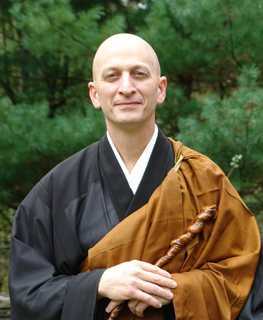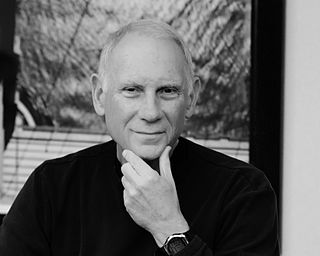A Quote by Koichi Tohei
Countless people have attempted to define the absolute power of the world of nature. Some praise it as god, some call it the Buddha, others call it truth. Still others convert nature into a philosophy by which they attempt to sound its deepest truth. Such attempts to define the power of nature are no more than striving to escape its effects.
Related Quotes
Our very name for God's Creation is NATURE, for that is what Nature is. I shall define Nature for you in simple words. Nature is an electric wave thought image of God's nature, electrically projected from His formless and unconditioned ONE LIGHT into countless many forms of conditioned light which we call matter.
Confession frees, but power reduces one to silence; truth does not belong to the order of power, but shares an origincal affinity with freedom: traditional themes in philosophy, which a political history of truth would have to overturn by showing that truth is not by nature free--nor error servile--but that its production is thoroughly imbued with relations of power. The confession is an example of this.
Different people call on [God] by different names: some as Allah, some as God, and others as Krishna, Siva, and Brahman. It is like the water in a lake. Some drink it at one place and call it 'jal', others at another place and call it 'pani', and still others at a third place and call it 'water'. The Hindus call it 'jal', the Christians 'water', and the Moslems 'pani'. But it is one and the same thing.
All those formal systems, in mathematics and physics and the philosophy of science, which claim to give foundations for certain truth are surely mistaken. I am tempted to say that we do not look for truth, but for knowledge. But I dislike this form of words, for two reasons. First of all, we do look for truth, however we define it, it is what we find that is knowledge. And second, what we fail to find is not truth, but certainty; the nature of truth is exactly the knowledge that we do find.
For us, mind has nature for its premise, being nature's truth and for that reason its absolute prius. In this truth nature has vanished, and mind has resulted as the idea arrived at being-for-itself, the object of which, as well as the subject, is the concept. This identity is absolute negativity, for whereas in nature the concept has its perfect external objectivity, this its alienation has been superseded, and in this alienation the concept has become identical with itself. But it is this identity therefore, only in being a return out of nature.
The New Age movement, for all the validity of its protest and the value of some of its recommendations, is in truth a very old blind alley. There is a very long history to remind us of what happens when nature is our ultimate point of reference . . . . Nature knows no ethics. There is no right and wrong in nature; the controlling realities are power and fertility.
You can call it tathata, suchness. 'Suchness' is a Buddhist way of expressing that there is something in you which always remains in its intrinsic nature, never changing. It always remains in its selfsame essence, eternally so. That is your real nature. That which changes is not you, that is mind. That which does not change in you is buddha-mind. You can call it no-mind, you can call it samadhi, satori. It depends upon you; you can give it whatsoever name you want. You can call it christ-consciousness.
In Philosophy, the contemplations of man do either penetrate unto God, or are circumferred to Nature, or are reflected and reverted upon himself. Out of which several inquiries there do arise three knowledges, Divine Philosophy, Natural Philosophy, and Human Philosophy or Humanity. For all things are marked and stamped with this triple character of the power of God, the difference of Nature and the use of Man.
In order to live, man must act; in order to act, he must make choices; in order to make choices, he must define a code of values; in order to define a code of values, he must know what he is and where he is – i.e. he must know his own nature (including his means of knowledge) and the nature of the universe in which he acts – i.e. he needs metaphysics, epistemology, ethics, which means: philosophy. He cannot escape from this need; his only alternative is whether the philosophy guiding him is to be chosen by his mind or by chance.
There are conversations going on about the Church constantly. Those conversations will continue whether or not we choose to participate in them. But we cannot stand on the sidelines while others, including our critics, attempt to define what our Church teaches... We are living in a world saturated with all kinds of voices. Perhaps now, more than ever, we have a major responsibility as Latter-day Saints to define ourselves, instead of letting others define us.
These various forms appear different in shape and size, yet they are of a single essence. . . . The Sixth Patriarch called it "essence of Mind". . . Here the Third Patriarch calls it "timeless Self-essence." Bankei called it "unborn Buddha-mind." They all refer to the same thing: Buddha-nature, true self. This essence is not born and can never die. It exists eternally. Some call it energy; others call it spirit. But what is it? No one knows. Any concept we have of what it is can only be an analogy. . . .
How shall we define occultism? The word is derived from the Latin occultus, hidden; so that it is the study of the hidden laws of nature. Since all the great laws of nature are in fact working in the invisible world far more than in the visible, occultism involves the acceptance of a much wider view of nature than that which is ordinarily taken. The occultist, then, is a man who studies all the laws of nature that he can reach or of which he can hear, and as a result of his study he identifies himself with these laws and devotes his life to the service of evolution.
































